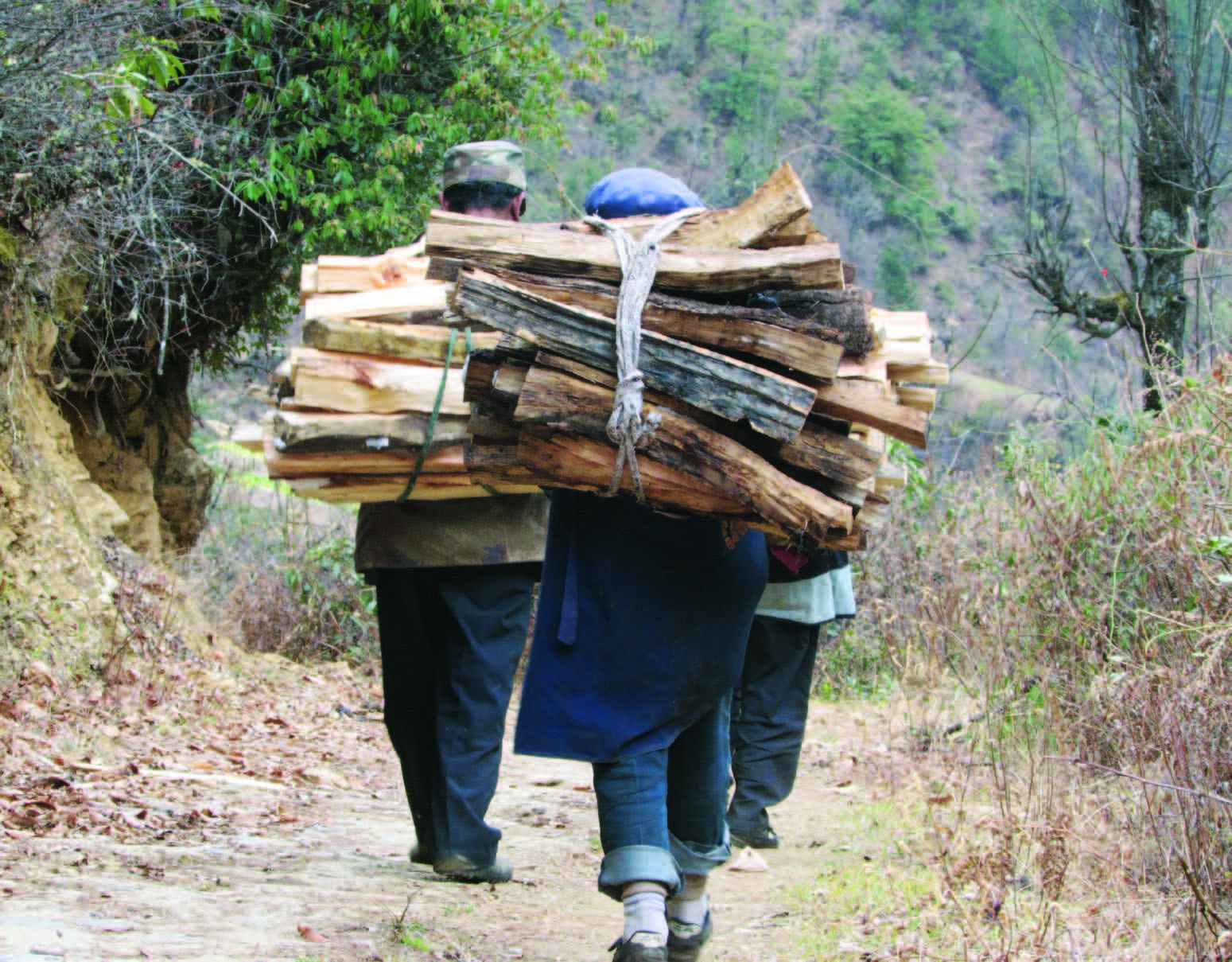
At the foothills of Baima Snow Mountain in Weixi County, Diqing Prefecture, Yunnan Province, are clusters of Lisu ethnic villages, and vast areas of collective forests and settlements within the Baima Snow Mountain National Nature Reserve, an important habitat of the Grade One Protected Yunnan Golden Snubnosed Monkey. The various restrictions in place limit people’s livelihood activities, farming,grazing, hunting and the collection of resources from the Reserve.Villagers as well as the administration of the Reserve have been seeking ways to balance livelihood and conservation.
In 2013, we collaborated with the Baima Snow Mountain National Nature Reserve Management Bureau, Weixi Sub-Bureau and supported the capacity building of local forest keepers. With research on issues such as firewood as an entry point, we aimed to identify traditional Lisu knowledge and traditions to enhance awareness on ecological preservation. The sessions also welcomed villagers to participate. It was at this time that Weixi Branch discovered that strong networks of concerned villagers already existed: women and elderly villagers were even meeting daily.
In November 2017, key members of these village networks joined training sessions on running community research as a way to identify and collect ideas about problems in the communities: 39 villagers, including women, forest keepers and elderly people, formed 10 teams to explore various issues ranging from forest protection and village sanitation to traditional culture.
The grazing team explored the challenges of land use: for grazing or grasslands? They found that traditionally, there had been Lisu rules to meet herders’ needs, such as grazing seasons for their cattle and methods for grassland restoration. Yet with the formation of the Reserve, grazing restrictions were enforced. It was through discussions with herders, that the decision to grow forage was reached –this has improved the situation and has reduced tensions.
The women’s team worked to address village sanitation and traditional culture. The team believed that to improve the village environment not only brings better health for all but also fosters better relationships among everyone. They also invited village elders to share Lisu history and stories and suggested that traditional musical instruments and clothing be revived, especially at festivals. The songs and dances communicate Lisu culture in a natural and enjoyable way and are particularly useful for children to experience at a young age.
In general, the teams have acted innovatively on various issues, such as finding alternatives to wood for bee hives and pig troughs, as ways to reduce the need to cut down trees. Dealing with issues that concern the community, the teams are motivated and confident to continue the investigation-discussion-action approach and are keen to explore the use of existing traditional practices to respond to modern challenges. The structure of the teams will be consolidated; meanwhile, team members are becoming adept group facilitators,leading villagers to identify and discuss problems, and eventually acting to bring about change.
(from Annual Report 2017-2018)

